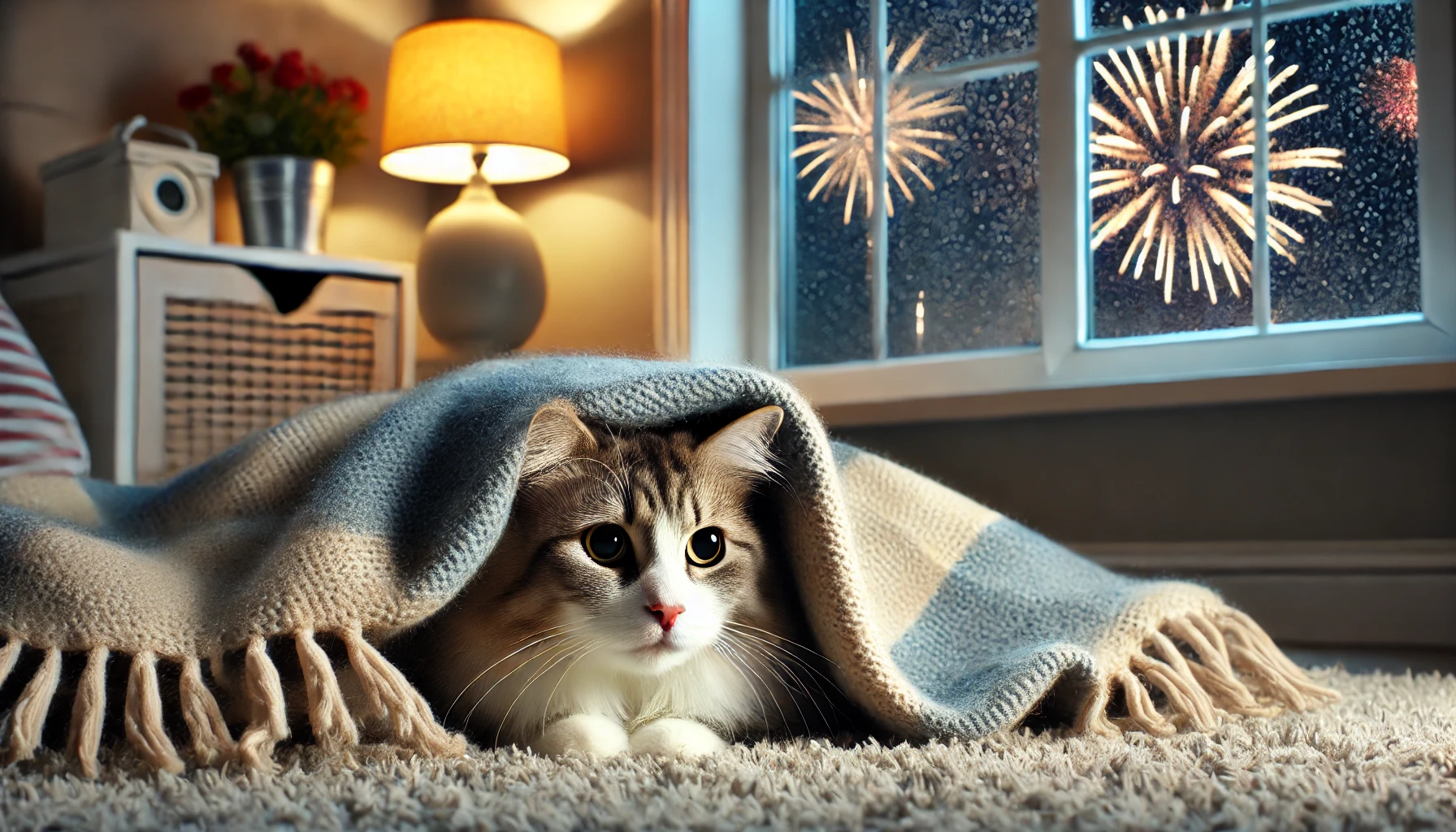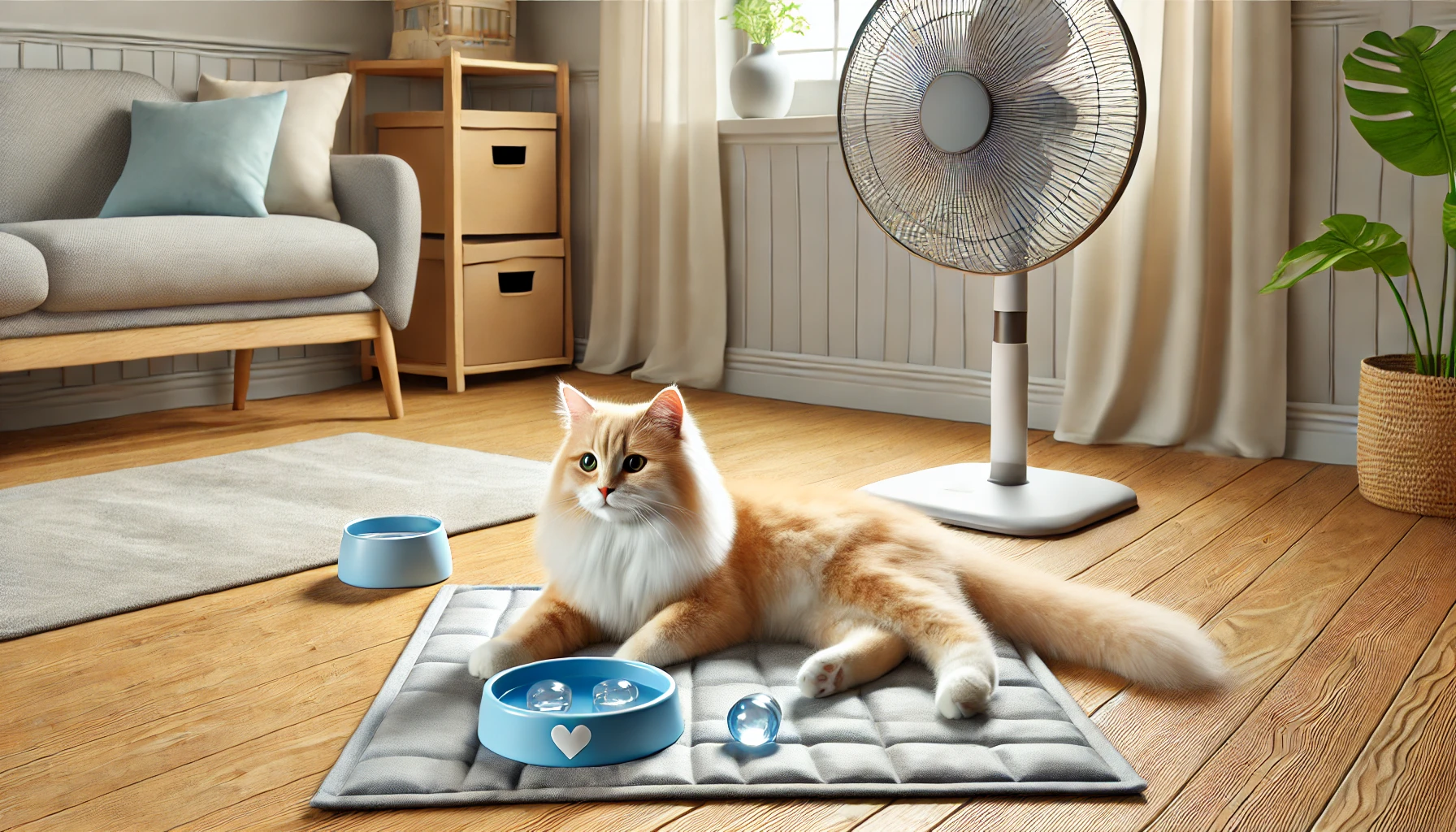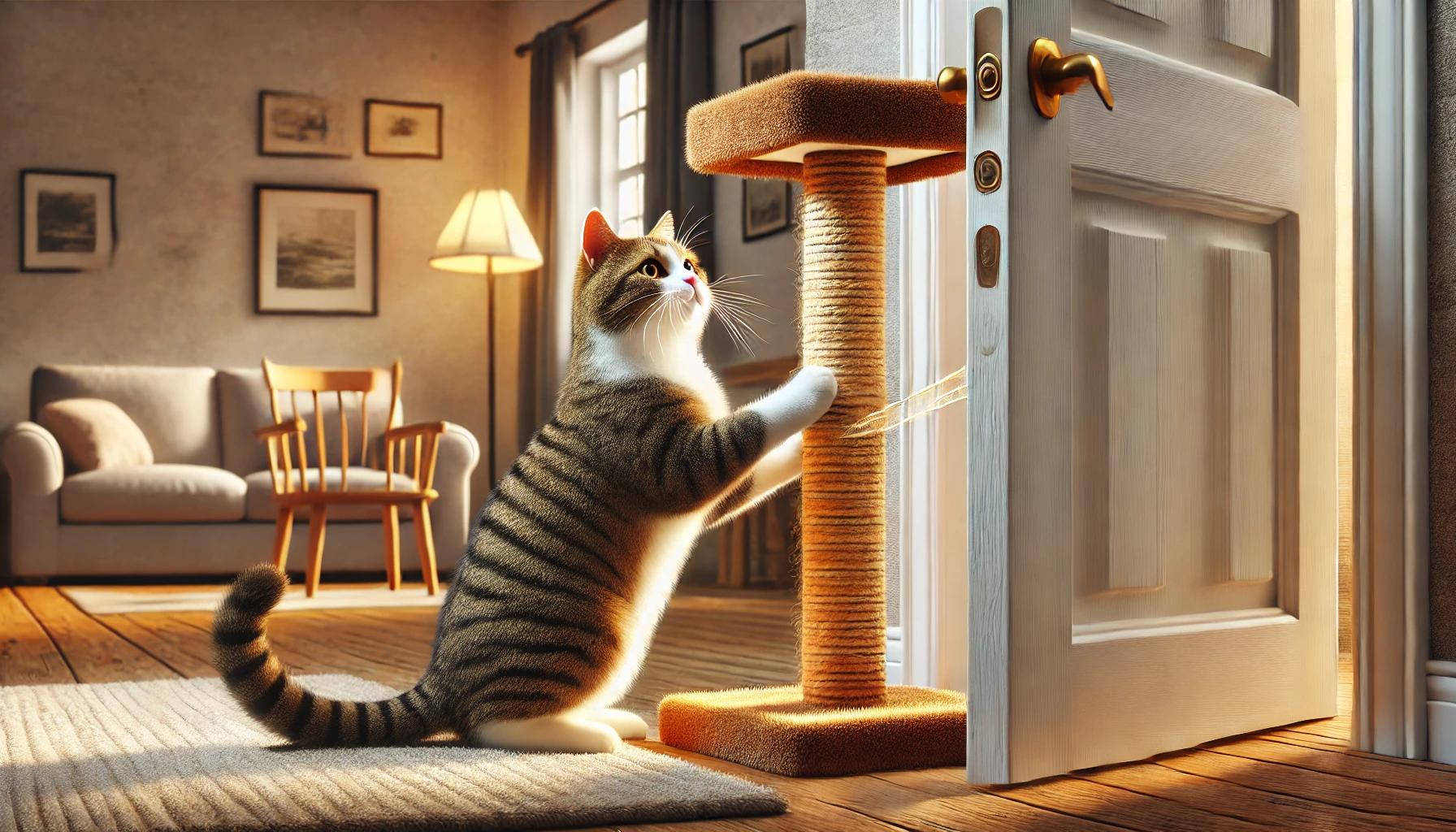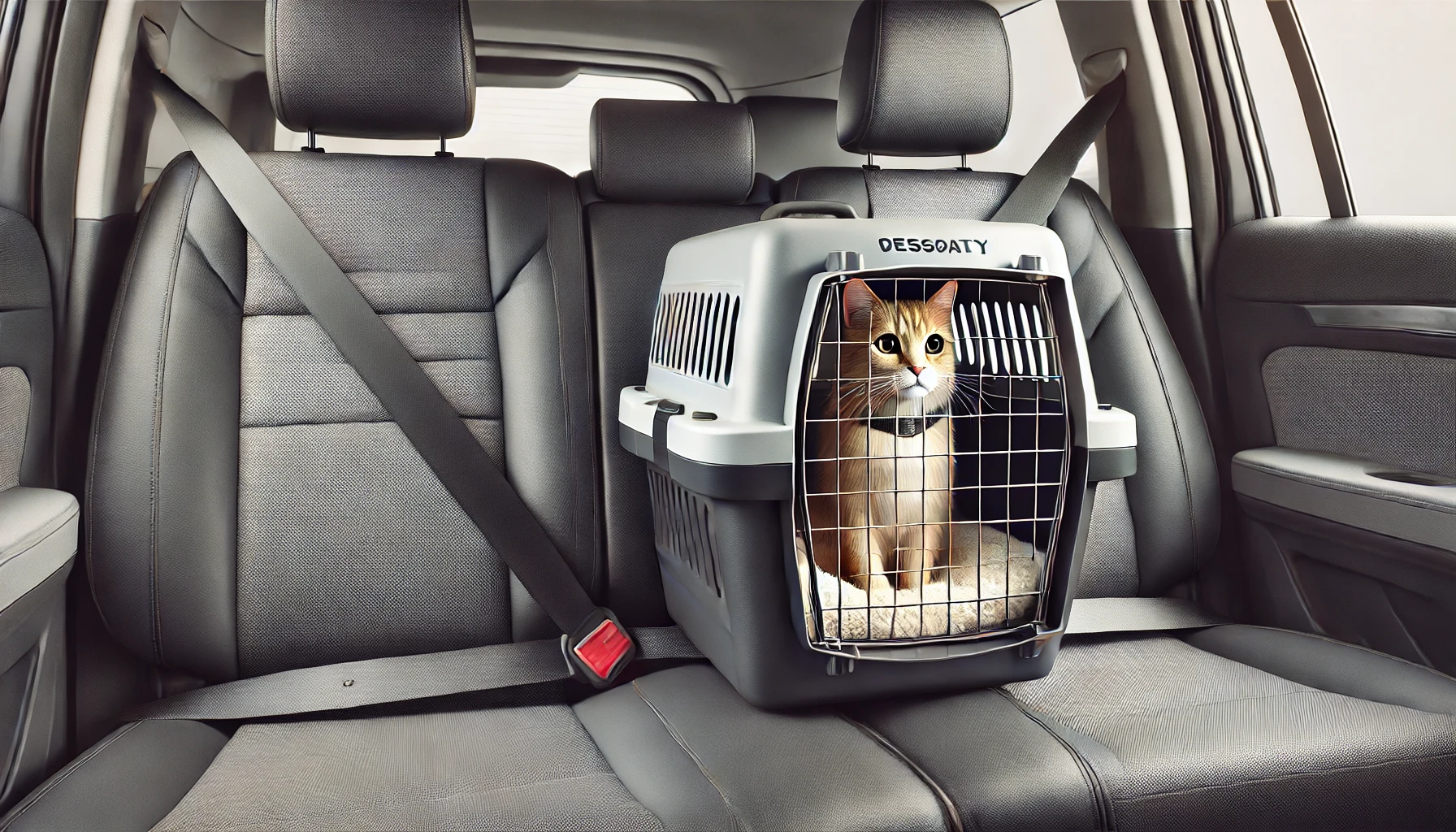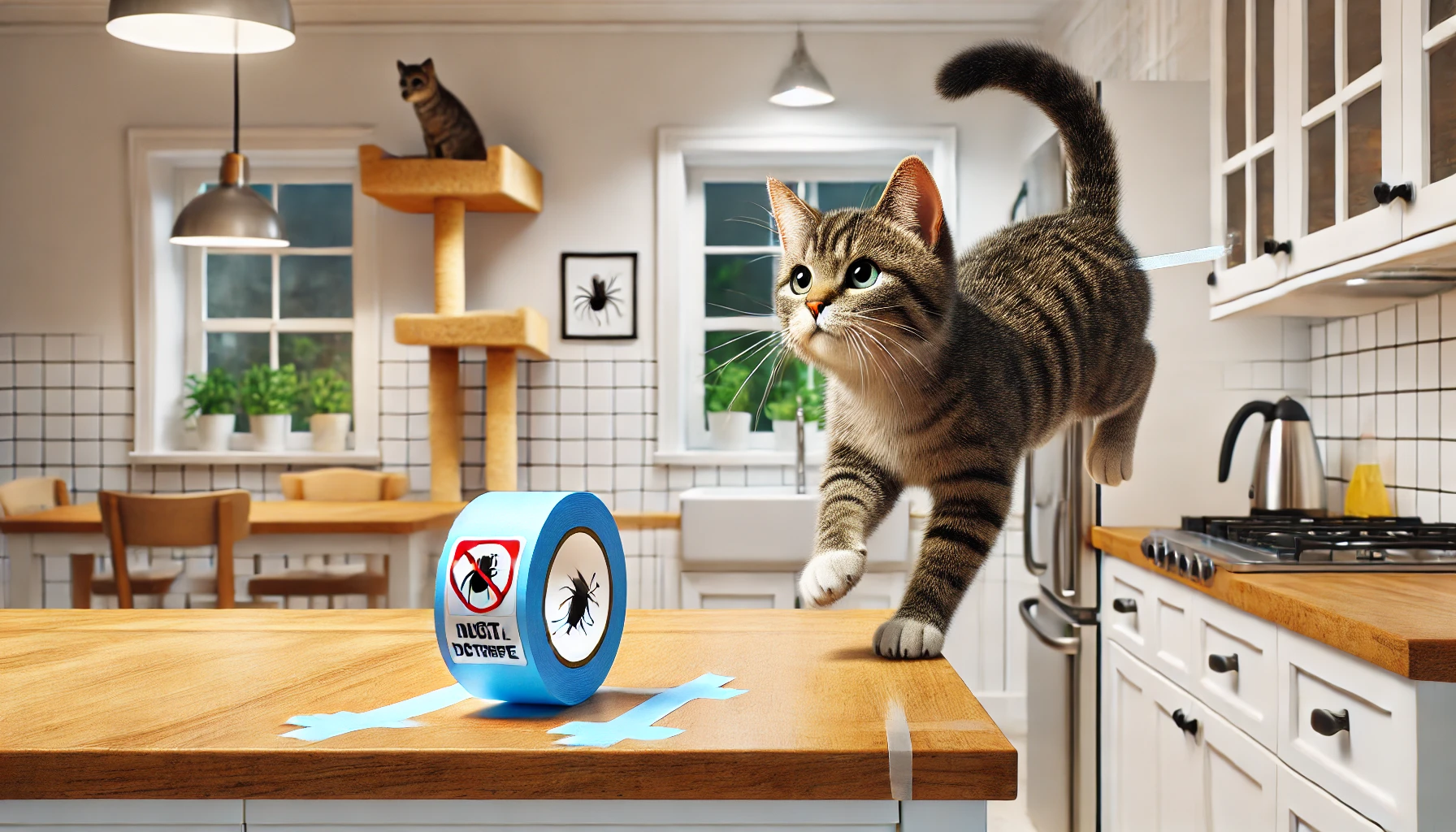Loud noises like fireworks, thunderstorms, or construction sounds can cause extreme stress and fear in cats. Their acute hearing makes them sensitive to sudden, loud sounds, leading to hiding, shaking, or even trying to escape.
In this guide, you’ll learn how to keep your cat calm, create a safe environment, and reduce fear during loud events.
1. Create a Safe Hiding Spot
When scared, cats instinctively seek a quiet, enclosed space. Providing a secure hideout helps them feel protected.
✅ How to Make a Safe Space:
✔ Choose a quiet, closed-off room (bedroom, bathroom, or closet).
✔ Add soft blankets, a cat bed, or a covered crate.
✔ Use familiar scents (your worn T-shirt, cat’s favorite toy).
✔ Keep litter box, food, and water nearby so they don’t have to leave.
🚨 Common Mistake: Trying to force your cat out of hiding.
Instead: Let them stay where they feel safest.
2. Keep Windows and Doors Secure
Scared cats may try to escape when they hear loud noises.
✅ How to Prevent Escapes:
✔ Close windows, doors, and cat flaps.
✔ Block any small openings where they might squeeze through.
✔ Make sure they’re microchipped and wearing an ID tag, just in case.
🚨 Common Mistake: Underestimating how fast a frightened cat can bolt.
Instead: Always secure all exits before fireworks or storms begin.
3. Muffle the Noise with Background Sounds
Soft, familiar sounds help reduce the impact of loud noises.
✅ Best Ways to Block Noise:
✔ Play calm music or white noise.
✔ Turn on the TV or radio at a moderate volume.
✔ Close curtains and windows to reduce sound and flashing lights.
🚨 Common Mistake: Playing music too loudly.
Instead: Keep sounds soft and soothing to avoid overwhelming them.
4. Use Calming Products to Reduce Anxiety
If your cat is extremely anxious, calming aids may help.
✅ Best Calming Options:
✔ Feliway pheromone diffusers – Releases calming scents.
✔ Calming treats or supplements – Contains natural stress relievers.
✔ A weighted blanket or covered crate – Provides a sense of security.
🚨 Common Mistake: Giving human medications without a vet’s approval.
Instead: Only use vet-approved calming products.
5. Stay Calm and Act Normally
Cats pick up on your emotions, so staying calm helps them feel safe.
✅ How to Reassure Your Cat:
✔ Speak softly and in a relaxed tone.
✔ Move slowly and avoid sudden reactions.
✔ Avoid excessive comforting, which may reinforce fear.
🚨 Common Mistake: Overreacting to their fear.
Instead: Act normal and confident to show there’s nothing to fear.
6. Distract Your Cat with Play and Treats
Engaging your cat in a fun activity can help take their mind off the noise.
✅ Ways to Keep Them Distracted:
✔ Offer a favorite toy or interactive game.
✔ Use a treat puzzle to keep them focused.
✔ Try gentle petting or brushing (if they enjoy it).
🚨 Common Mistake: Forcing interaction if they want to hide.
Instead: Let them decide if they want distraction or solitude.
7. Avoid Letting Your Cat Outside During Fireworks or Storms
Outdoor cats are at high risk of panic and running away.
✅ Keep Your Cat Indoors:
✔ Bring outdoor cats inside before loud events start.
✔ Provide a safe, quiet indoor space.
✔ Check for hiding spots in the house if they try to escape.
🚨 Common Mistake: Thinking they will “get used to it” outside.
Instead: Always keep them indoors during loud events.
8. Try a Thunder Shirt for Extra Comfort
A ThunderShirt or similar calming wrap can help reduce anxiety.
✅ How It Works:
✔ Applies gentle, constant pressure (like a hug).
✔ Helps with fireworks, storms, and general anxiety.
✔ Available in different sizes for cats.
🚨 Common Mistake: Putting it on right before the noise starts.
Instead: Let them wear it a few times before to get used to it.
9. Feed Your Cat Before the Noise Starts
Cats are less likely to eat when they’re stressed.
✅ How to Plan Meals:
✔ Feed them a full meal 1–2 hours before fireworks start.
✔ Offer calming treats before loud events.
✔ Keep water accessible in their safe space.
🚨 Common Mistake: Trying to feed them during high-stress moments.
Instead: Feed them ahead of time when they’re still relaxed.
10. Know When to Seek Veterinary Help
If your cat experiences extreme anxiety, professional help may be needed.
🚨 Signs Your Cat Needs a Vet’s Help:
❌ Hiding for hours or days after the event.
❌ Not eating or drinking for more than 24 hours.
❌ Shaking, excessive drooling, or aggression.
❌ Extreme fear that disrupts daily life.
🚨 In severe cases, a vet may recommend anti-anxiety medication.
Final Thoughts
Loud noises can be terrifying for cats, but with the right precautions, you can help them feel safe and secure.
🐱 Key Takeaways:
✅ Create a quiet, safe hiding spot.
✅ Keep windows and doors closed to prevent escape.
✅ Use calming music, pheromones, or weighted blankets.
✅ Avoid over-comforting—act calm and confident.
✅ Distract with play, treats, or gentle petting.
✅ Keep outdoor cats indoors during loud events.
✅ Know when to seek veterinary help for severe anxiety.
With patience and preparation, your cat can stay calm and safe during fireworks, storms, and other loud noises! 🎆🐾💖

